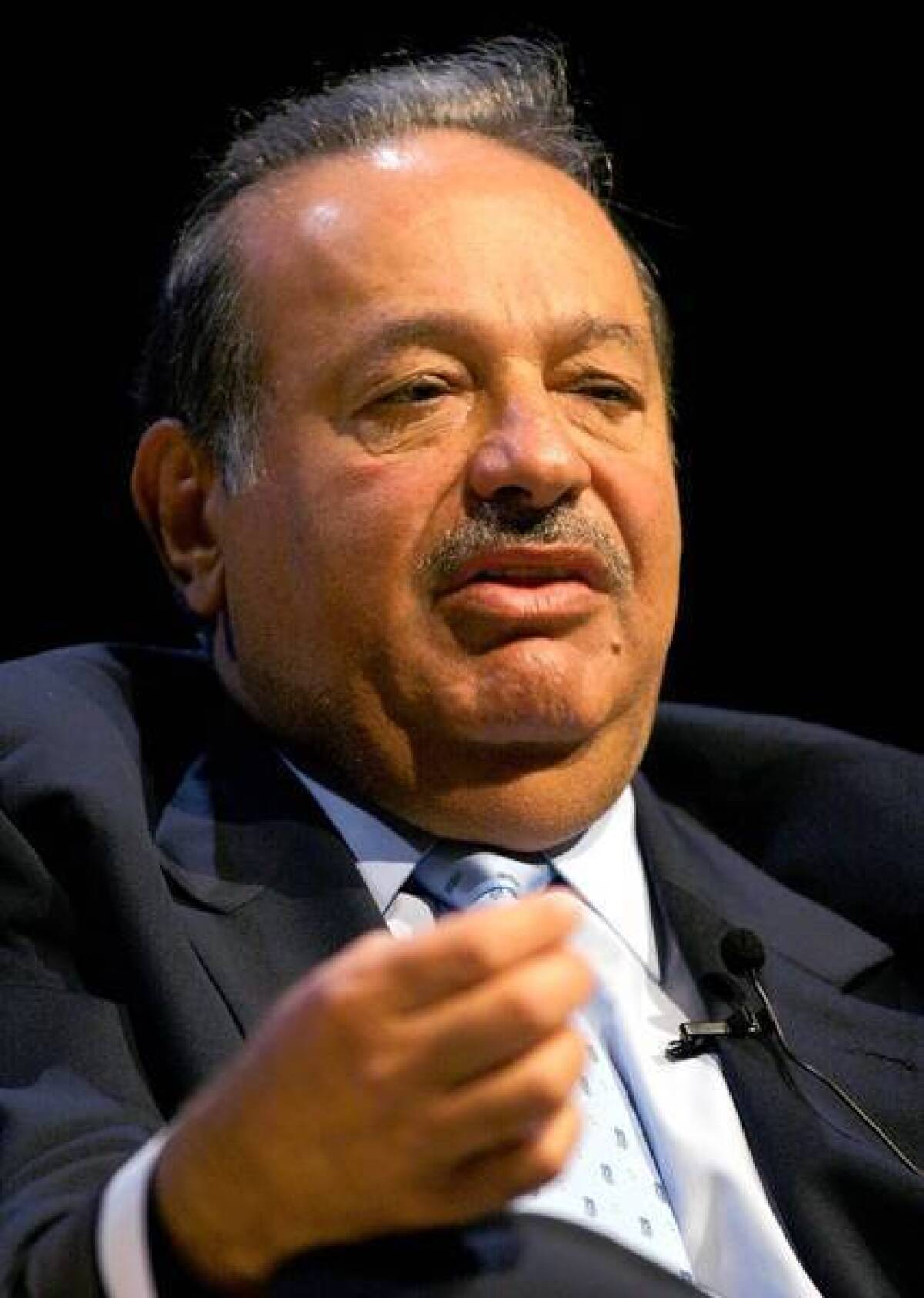Mexico sues billionaire Carlos Slim’s Telmex over phone fees

- Share via
MEXICO CITY — In an unusual legal action against the world’s richest man, Mexico is suing the telecommunications giant Telmex for charging allegedly illegal fees that were tacked on to what are already some of the highest phone rates among developed countries.
The lawsuit, filed in civil court by the federal consumer protection agency, aims to end a set of fees and, in what may be a first in this country, recover money for millions of telephone users.
Telmex provides about 80% of fixed telephone lines in Mexico. It is owned by tycoon Carlos Slim, listed for the last few years by Forbes magazine as the wealthiest person in the world, with an empire estimated at $73 billion.
Slim also controls nearly three-quarters of the Mexican cellphone market through another company, Telcel, part of his regional conglomerate America Movil. Telcel has also been sued by the consumer protection agency for failing to reimburse users for a series of recent service outages.
The Telcel action came in February, and the Telmex suit was announced this week. Both are being undertaken as part of a relatively new mechanism in Mexican jurisprudence: a “collective action,” which is similar to a class-action suit in the United States except that it is initiated by a government agency, not a group of citizens. It was written into Mexican law a year ago but has been used sparingly.
Rafael Ochoa, a senior prosecutor in the consumer agency, known as Profeco, said Telmex has been illegally charging 10.40 pesos, or about 85 cents, a month to users who requested their names be left out of a telephone directory. The fees are improper because the right to privacy is a constitutional guarantee, he said.
“That’s why we are acting,” Ochoa said in a telephone interview Tuesday. “These are concepts they have no right to charge for, and it hurts consumers.”
An estimated 14.5 million Mexicans use Telmex fixed-line phones, but it is not yet clear how many have been paying for the privacy service, Ochoa said.
The actions are likely to be popular with the public. Telephone rates in Mexico are among the highest in the developed world, according to the Organization for Economic Cooperation and Development. Yet Mexicans routinely complain that the service is dismal.
Telmex spokesman Renato Flores said the company would not immediately comment on the suit.
Normally, businesses like Telmex would protect themselves using a kind of legal injunction, known as amparo, that has stymied numerous prosecutions.
But, as it happens, this week also saw changes to the amparo that, among other things, would prevent its use in cases involving “significant public interest.” Many experts believe that Telmex will not be able to avail itself of the amparo this time.
Consumer advocates welcomed the lawsuit but questioned why it took so long to challenge the fees, which have been in place for years, and whether the action will have much effect on the power of monopolies.
“It is better than nothing,” said Daniel Gershenson, an activist from the Al Consumidor (For the Consumer) organization. “But I don’t think it will put a dent in Slim’s fortune or dissuade him and others whose corporate culture is this kind of abusive practice.”
Officials in the 4-month-old government of President Enrique Peña Nieto have portrayed actions like these as part of a broader, reform-minded effort to take on monopolies and other special interests that have long hindered economic growth. That program includes a major overhaul of the telecommunications industry aimed at increasing competition, under legislation proposed March 11.
Critics, however, see the moves as Peña Nieto’s push to consolidate power in the hands of the presidency by taking it away from de facto rival forces like big businesses.
So far, the targets have been selective, focusing on several previously untouchable figures who did not publicly support Peña Nieto’s election campaign. Those include Elba Esther Gordillo, the powerful leader of the teachers union who was arrested in February on embezzlement charges, and now Slim.
Ochoa said that his agency was not out to get Slim, and that any company acting as a monopoly and exacting unfair charges could be targeted.
“It is nothing personal,” he said.
Cecilia Sanchez of The Times’ Mexico City bureau contributed to this report.
More to Read
Sign up for Essential California
The most important California stories and recommendations in your inbox every morning.
You may occasionally receive promotional content from the Los Angeles Times.














